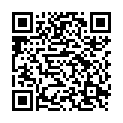|
|
|
| Module code: FT27 |
|
|
6V+1P (7 hours per week) |
|
7 |
| Semester: 6 |
| Mandatory course: yes |
Language of instruction:
English/German |
Assessment:
Written exam 120 min.
[updated 30.09.2020]
|
FT27 (P242-0040, P242-0041, P242-0042, P242-0043) Automotive Engineering, Bachelor, ASPO 01.10.2011
, semester 6, mandatory course
FT27 (P242-0040, P242-0041, P242-0042, P242-0043) Automotive Engineering, Bachelor, ASPO 01.10.2015
, semester 6, mandatory course
FT27 (P242-0040, P242-0041, P242-0042, P242-0043) Automotive Engineering, Bachelor, ASPO 01.04.2016
, semester 6, mandatory course
FT27 (P242-0040, P242-0041, P242-0042, P242-0043) Automotive Engineering, Bachelor, ASPO 01.10.2019
, semester 6, mandatory course
|
105 class hours (= 78.75 clock hours) over a 15-week period.
The total student study time is 210 hours (equivalent to 7 ECTS credits).
There are therefore 131.25 hours available for class preparation and follow-up work and exam preparation.
|
Recommended prerequisites (modules):
FT17 Automotive Engineering I
FT20 Electric Vehicle Drive Systems
FT21 Vehicle Combustion Engines
FT22 Automotive Engineering II
FT25.1 Hybrid Vehicle Drives and Fuel Cells
[updated 18.02.2020]
|
Recommended as prerequisite for:
FT32 Bachelor Thesis
[updated 18.02.2020]
|
Module coordinator:
Prof. Dr.-Ing. Rüdiger Tiemann |
Lecturer:
Professor/innen des Studiengangs
[updated 18.02.2020]
|
Learning outcomes:
After successfully completing this course, students will:
- carry out common vehicle tests such as performance and consumption measurements or chassis technology tests such as balancing and wheel alignment on internal combustion engine, electric or hybrid vehicles.
- define problem-oriented vehicle tests independently and carry them out in small groups under the guidance of the professors involved.
- document and evaluate test results.
[updated 30.09.2020]
|
Module content:
In the context of the lecture, common and specifically defined vehicle tests from different vehicle modules will be presented: Drive train (incl. electric and hybrid), body and chassis (incl. brakes and steering) - introduction and detailed description // Objective, instrumented vehicle tests, as well as the subjective driving tests that are indispensable for passenger cars //
In the practical part of the course, vehicle tests will be carried out, evaluated, documented and assessed in small groups under the guidance of the participating professors. This will be documented in the students´ papers.
Students´ experiences from previous lab tests will be of advantage here.
[updated 30.09.2020]
|
Teaching methods/Media:
Lecture with materials (PowerPoint, Word, Excel)
Seminaristic instruction in small groups for the lab exercises.
[updated 30.09.2020]
|
Recommended or required reading:
Topic and semester-specific literature recommendations.
[updated 30.09.2020]
|


